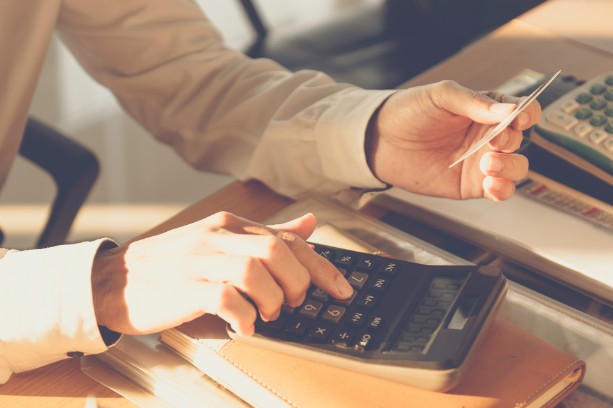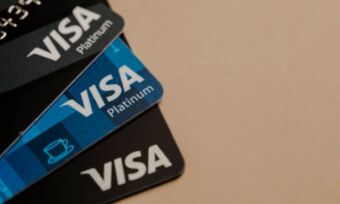How to pay off your credit card
If the amount owed on your card is starting to blow out, it could be worth considering one or more of these seven strategies to help get your credit card debt under control.
1. Put your card on ice
One way to scale back card debt is to tuck the credit card away for a while and remove it from your digital wallet. This could help to curb your spending, at least until the outstanding balance reaches a more comfortable level.
If you can resist the temptation to spend more, NAB says that holding onto an old card rather than closing the account altogether can help you maintain a healthy credit score. Be mindful that you may need to pay an annual fee to keep a credit card open, even if it’s not in use.
2. Pay more than the minimum
Sticking to a card issuer’s minimum repayments may seem tempting, but minimum repayments can be as little as 2% of the card balance, which is a lot less than the interest you’re likely to be charged on the remaining debt. Paying the bare minimum each month can therefore see your outstanding balance blow out substantially.
Paying more than the minimum can help you turn the situation around. Every extra dollar paid helps to whittle away the balance owed. This helps to lower your next month’s interest charge, which in time can help you turn the tide and get ahead on your credit card debt sooner.
If you’re struggling to find extra cash for repayments, planning a budget could help you work out where you can cut back spending and free up additional funds.
3. Make early repayments
You don’t have to wait until your monthly credit card statement arrives to make a repayment. Cardholders can usually make a payment at any time, especially through online banking, which can help to reduce your credit card debt, and lower monthly interest charges.
4. Make payments on time
Missing a minimum credit card repayment can see you slugged with late payment fees. These can be around $15 per missed payment. While it’s not a huge sum, it does add to your card balance, and continually running behind with payments can risk damage to your credit score.
5. Consider focusing on higher rate cards first
If you have more than one credit card, you may save more in interest charges by focusing on fully paying off the card with the highest rate first (for example, aiming to pay off a card with a rate of 20% before turning your attention to a card charging 15% interest).
If you have multiple cards with similar interest rates, paying off the smallest balance first could help you stay motivated to tackle the bigger balances.
6. Consider a balance transfer
A balance transfer offer is where you pay out your existing credit card with a new card that, for the introductory period, charges zero interest or a very low interest rate.
A balance transfer deal could give you breathing space to get ahead with clearing your credit card debt if you knuckle down and pay off the balance while low or zero rates apply.
However, after the introductory period expires, interest will be charged on any balance still owing, often at a high rate.
The transfer deal best suited to your needs can depend on how much you owe on your original credit card, and how quickly you can realistically pay it off. For example, some balance transfer offers charge zero interest for 12 months, which could be an ambitious timeframe to pay off a substantial debt.
If it’s unlikely you’ll be able to pay off your old credit card debt within a short period, you may prefer a card that comes with an extended interest-free or low rate period. The key is to be realistic about how long it will take to clear the outstanding balance. Use your budget as a guide to what you can repay and aim to stick with this.
7. Talk to your card issuer
If it’s proving a struggle to get on top of card debt, or you can’t pay your credit card bill, it’s important to get in touch with your bank or card issuer, ideally before you miss a repayment. Credit bureaus may record missed repayments and defaults on your personal credit history, which may affect your credit score.
Most card issuers will work with you to negotiate a more manageable repayment plan. Westpac, for example, has a feature called SmartPlan, which splits credit card repayments into instalments (conditions apply).
If you are having difficulties with personal debt more broadly, you may want to visit the National Debt Helpline website or call the National Debt Helpline on 1800 007 007. Their professional financial counsellors provide free and confidential advice.
Why credit card debt matters
Credit cards can be useful for some people as a source of emergency funds, or as a chance to earn reward points. And if you can pay off purchases within the interest-free period, it could be possible to avoid paying card interest altogether.
However, if you are facing rising credit card debt, it’s often worth taking early action to bring the balance back under control. Credit cards can come with high interest rates, and the potentially ever-increasing interest bill can make it difficult to get on top of the balance.
Credit card debt and late payments can also affect your credit score, which could make it harder to be approved for future loans, such as a home loan.
How to keep your credit card debt manageable
With time and perseverance, it is possible to pay off credit card debt. But to help things stay that way, you could ask your card issuer to lower the credit limit on your card. It’s a step that can prevent you reloading a freshly -cleared card with more purchases.
To lower your credit limit, contact the bank or card issuer and request a reduction in your credit limit. It usually takes just a few days for the new limit to be in place.
Cover image source: CC7/Shutterstock.com








